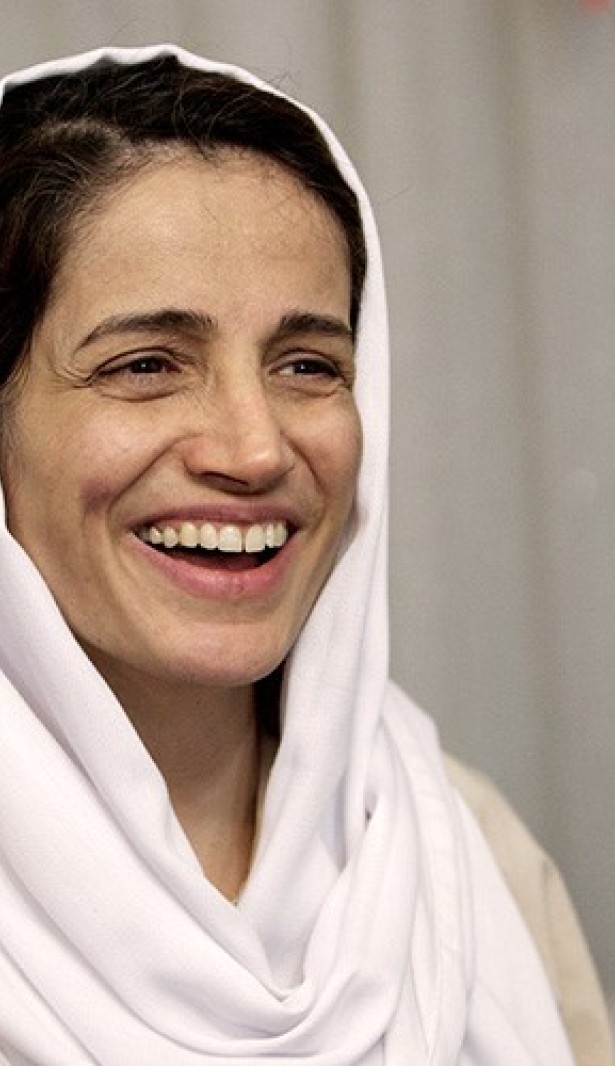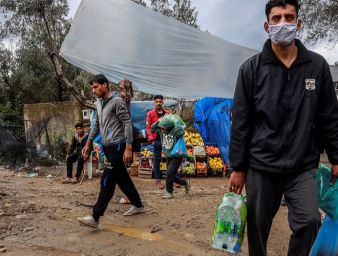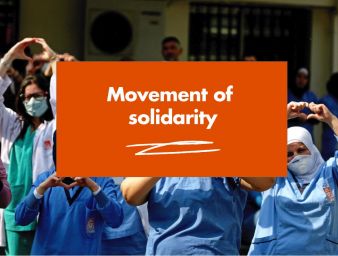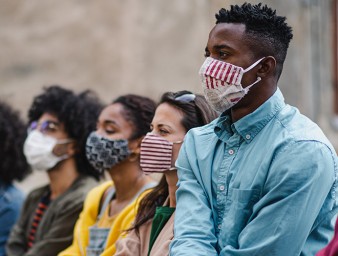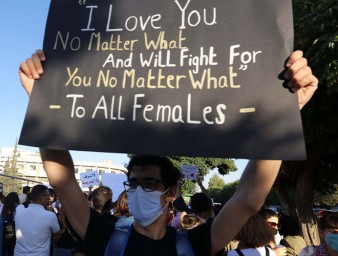Defending rights of Iranian prisoners amidst the COVID-19 pandemic
21 May 2020
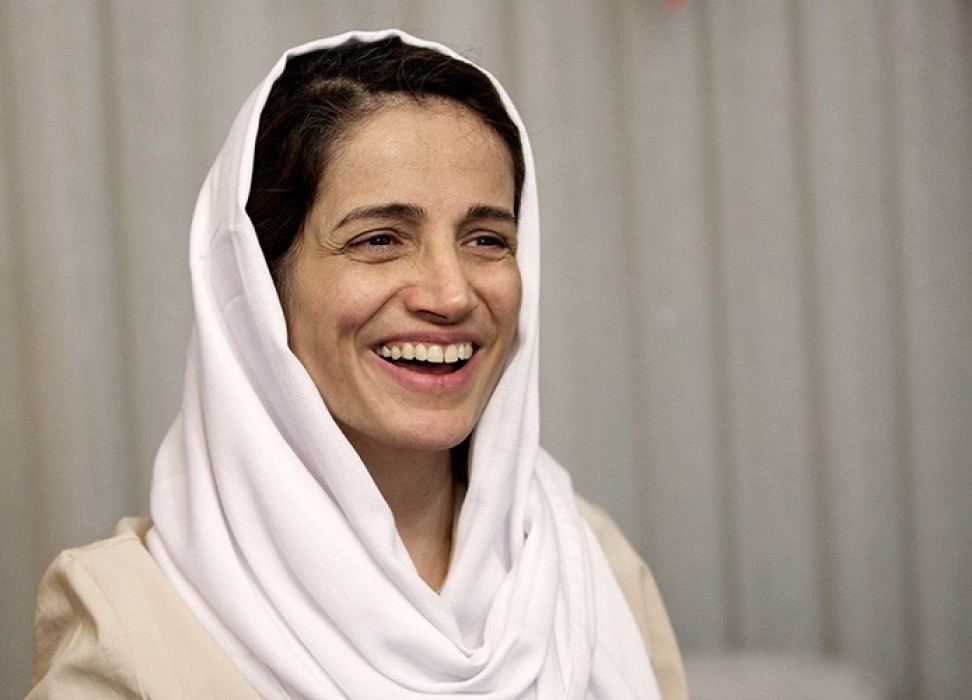
By going on a hunger strike when the COVID-19 outbreak began, prominent Iranian human rights lawyer, Nasrin Sotoudeh “tried to pressure the prison’s authorities to release prisoners, or at least grant them temporary release on furlough,” says her husband, Reza Khandan.
Sotoudeh has been detained in Evin Prison in Tehran since June 2018. A very public and vocal lawyer - defending people accused on political charges, human rights activists fighting for freedom of expression, or women protesting the compulsory hijab – this is Sotoudeh’s second time in prison.
Iran has been hit extremely hard by the COVID-19 pandemic. At the time of writing, the World Health Organization had recorded 126,949 cases and 7,183 deaths. The situation in prisons across the country is particularly worrying. Amidst overcrowded, unsanitary and cramped conditions, a number of prisoners have been affected by the virus, and deaths have been reported.
Sotoudeh’s hunger strike, which she carried out with three political and civil society activists who were also imprisoned, lasted several weeks, severely affecting their health. It was a call to expand the judiciary’s temporary release program.
Since the pandemic began, between 80,000 – 100,000 prisoners in Iran have been temporarily released, according to the authorities, as a mitigating measure to avoid the spread of the virus in prisons.
A number of those released were denied any extension, and were ordered to return to prison this month.
Thousands of others also still remain. Prisoners of conscience, dual and foreign nationals, human rights lawyers and defenders, and also, conservationists, are amongst those who await a decision on their future. Their families have appealed to the judicial authorities to release them on furlough at least until the health crisis is under control.
Khandan has major concerns about his wife’s health. He says inadequate conditions in Evin Prison’s medical facilities are deterring many from seeking healthcare, and that basic hygiene and sanitary equipment are lacking. “My wife has underlying health conditions,” he notes. “When I talked to her yesterday, she told me that in the past two months, she had not gone to the medical ward as she is afraid of contracting COVID-19. Instead, she has tried to treat herself and put up with the situation.”
A human rights defender in the face of courts and a system “that do not accept any form of defence”
Khandan describes his wife’s commitment to protect human rights: “When she sees that someone is subject to a human rights violation, without thinking of herself or her own interests, she steps up with all her power and ability to defend that person. If she can, she defends them in court, in the streets, or by accompanying them and their families. She tries to defend them in the face of courts and a system that do not accept any form of defence.”
Himself also a human rights activist, Khandan has been living without his wife on and off for 10 years. Sotoudeh was also arrested and jailed in 2010 on charges of spreading propaganda and conspiring to harm state security. Initially sentenced to 11 years imprisonment, she was released early in 2013.
According to Khandan, the Government of Iran’s main reason for Sotoudeh’s arrest was that she defended prisoners of conscience and political prisoners.
Now living with his two children, Khandan says they try to have a “calm and normal life.” But he adds that a plethora of other problems in Iran in addition to COVID-19, such as economic instability, make living an ordinary life challenging.
“We try, but the truth is that life and conditions are just not normal for us.”
A plea for release
In an open letter written from Evin Prison on 8 March, Sotoudeh herself called for support. “As a deadly virus sickens my country, I throw my hands down,” she wrote “and as a citizen, in a gentle voice, I ask the government to end their animosity with the world, to look at the world through the eyes of peace and to trust life and human beings. I ask human rights activists to help us in our peaceful endeavour.”
Khandan strenuously repeats his wife’s pleas for the Iranian Government to release political prisoners and prisoners of conscience, and also requests international support. “In the last hundred years, we have not seen a similar situation with the whole world affected by a virus,” he says. “However even in such an extraordinary situation, the Government conducted a ‘sensationalist’ release of thousands of prisoners, but has still refrained from freeing all political prisoners.
I hope that attention to the situation from public opinion and from international organisations will increase, and that they will make serious requests to the Iranian Government to release political prisoners.”
Global calls for prison releases
In late March, UN High Commissioner for Human Rights Michelle Bachelet called on governments to take urgent action to ease overcrowding in prisons, warning that failure to do so would be “potentially catastrophic.”
“Now, more than ever, governments should release every person detained without sufficient legal basis, including political prisoners and others detained simply for expressing critical or dissenting views,” said Bachelet.
She also insisted that when people are released, they are screened, their health monitored and that they receive appropriate medical care.
In the specific case of Iran, the UN Human Rights Office says that furlough and temporary release must be implemented as an urgent public health measure. While welcoming the thousands of releases that have taken place, the Office has urged that political prisoners, human rights lawyers and defenders, journalists, artists, conservationists and dual and foreign nationals who have been denied furlough, must also be released.
In the meantime, the UN Human Rights Office has pointed out that providing quality medical care in Iranian prisons is an obligation under international law. Detainees also require access to hygiene products, and nutritious food in sufficient quantities.
Their fundamental human rights cannot be forgotten.
21 May 2020
